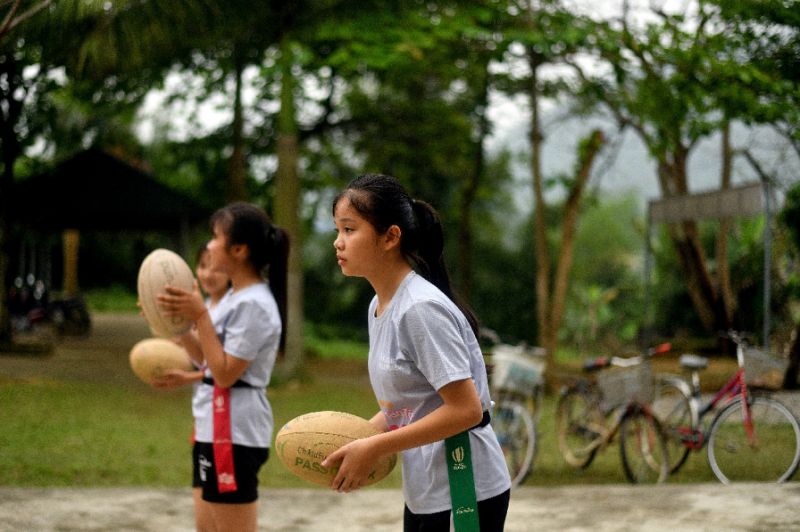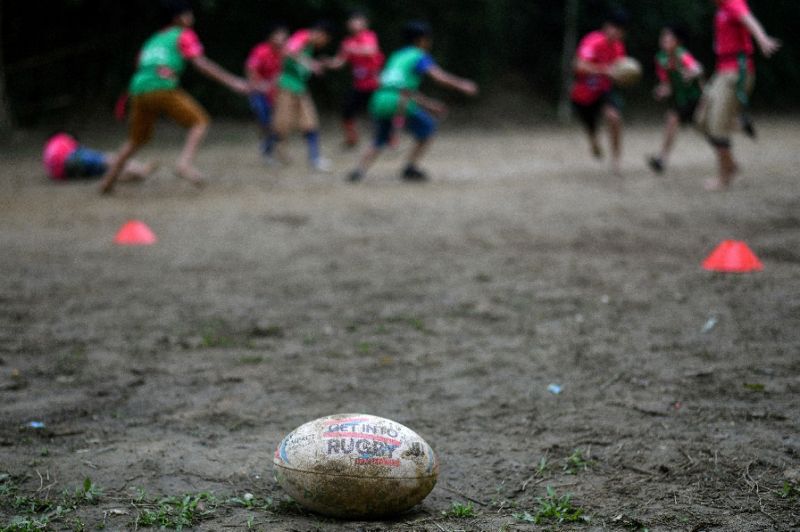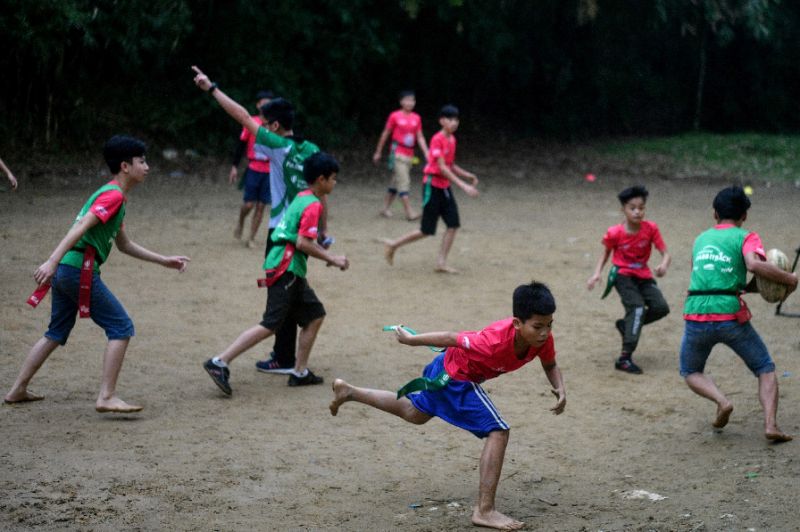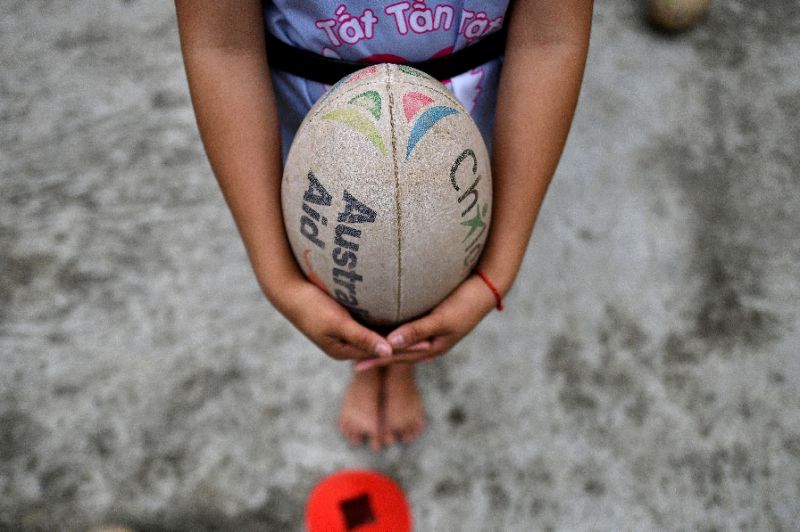Barefoot and muddied, a group of youngsters sprint across a makeshift pitch in rural Vietnam, passing the ball in a game of touch rugby in a country where few people have ever heard of the sport.
They belong to Vietnam's only rugby program for locals, rolled out for kids in a remote commune where some players have to travel by boat to training sessions often held against a backdrop of rice terraces and curious onlookers.
Few knew anything about rugby when they joined the scheme, marvelling at the egg-shaped ball, but are now keen fans planning to closely follow the Rugby World Cup in Japan, which starts in September.
"I haven't watched international rugby... but if possible I will surely watch the Rugby World Cup," said 14-year-old Bao Cham, a player on the Silver Fox team in Kim Boi District.
With the first Rugby World Cup held in Asia, organisers are hoping to boost rugby's popularity in backwaters like Kim Boi, where most kids count Lionel Messi as a hero but have never heard of New Zealand great Dan Carter.
 |
| More than half of the players in the program are female. Photo: AFP |
Vietnam is one of the few countries in Southeast Asia with no rugby federation, and international games are not regularly aired on cable television.
That means the sport remains on the margins, making the rugby clinic in Kim Boi something of an oddity.
First time on a plane
Launched in 2015, the ChildFund Pass It Back program is aimed at teaching youngsters life skills, with lessons on health or planning for the future interspersed with rugby training sessions.
The players aged 11 to 16 meet regularly on weekends to play touch rugby, which has none of the full-contact version's heavy tackling.
There are more than 6,100 players and coaches in the program today, more than half of them female, in Vietnam, Laos, East Timor and the Philippines.
Some players will go to Japan in March with ChildFund - travelling by plane for the first time - for rugby training and life-skills sessions.
Rugby wasn't the most obvious choice. Football, volleyball and sepak takraw (kick volleyball) were also floated as options when the program was piloted in Laos, but rugby was considered the most gender-neutral.
"The young girls in the commune wanted to try this new sport that they had never seen before, it wasn't considered a boys' sport," John Harris, regional operations officer for the scheme, told AFP.
 |
| Many of the players are barefoot and they train on a makeshift pitch. Photo: AFP |
Still, some participants in Vietnam had to push back against entrenched sexism.
Coach Bui Thi Lan was told by her in-laws that she should give up rugby after marrying and having a baby - in line with expectations women should avoid playing rowdy sports.
Lan would have none of it.
She came back to coaching four months after giving birth and now teaches 60 kids four times per week.
"Rugby brought me money so that I could take care of myself, working and studying at the same time," she told AFP at a recent training session, where she fed her baby between modules.
Not so foreign, but not popular
Battling inequality wasn't the only hurdle.
There was no vocabulary in Vietnamese for the sport and some terms were coined on the fly.
A scrum is "mai rua" which means 'turtle shell' in Vietnamese, while the name for rugby is simply "bong bau duc", which translates to 'oval ball'.
 |
| Many of the players are barefoot and they train on a makeshift pitch. Photo: AFP |
Rugby was not always so foreign to Vietnam, though it has never been widespread among locals.
The French are believed to be the first to bring rugby to the country, and an excerpt from a 1933 phone book describing the Saigon Sports Stadium notes a rugby pitch with stands for 3,000 spectators.
Today there are no professional Vietnamese-born players abroad - though France fly-half Francois Trinh-Duc is of Vietnamese origin - and just a small group of expatriates playing recreationally in Hanoi and Ho Chi Minh City.
But the game isn't totally unfamiliar in Vietnam, as it echoes aspects of the traditional "vat cau" new year festival that sees shirtless men wrestle for possession of a large wooden ball on a field.
Now Vietnam's budding young rugby stars hope the sport will start to gain popularity.
"I really wish that Vietnam would participate in Rugby World Cup one day, and I hope to be a member of that team," coach Bui Van Nhan, 17, told AFP.

















































